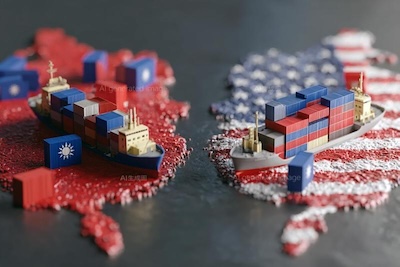Once a symbol of street activism, Huang Kuo-chang rose to prominence through the Sunflower Movement, resisting China’s economic influence and waving the banner of reform. With a law degree from Cornell, he built an image of a rational “warrior of justice,” attracting a large following of young supporters—known as the “Little Grass” (小草)—who admired, imitated, and even idolized him as a new-generation “god.”
But when a political figure is deified, reason gives way to blind faith. If you say, “What if we were Huang Kuo-chang,” then this group of Little Grass are no longer independent citizens, but mere replicas of his thoughts and actions. In his worldview, all problems seem to have simple solutions: lacking electricity? Just support nuclear power. An unjust judiciary? Just call for purges. Government incompetence? Just raise your voice louder. But are these proposals truly viable and well thought out? Can we really believe one man can fix all of Taiwan’s problems?
Huang’s political credibility came into question when he left the New Power Party he helped found, joined Ko Wen-je’s Taiwan People’s Party, and even aligned with the Kuomintang—his former adversaries. This shift stunned his past allies and made many wonder: Is Huang still the idealistic reformer he once was? Or has he become just another player in the power game?
Recent events made these contradictions even more glaring. In the past, Huang often attacked his political opponents by questioning their or their families’ U.S. citizenship, infamously calling President Lai Ching-te “the American grandfather.” Now, revelations suggest Huang’s own son may have been born in the U.S., implying he too holds U.S. citizenship. Instead of addressing the issue directly, Huang called it “perverted doxxing,” using his wife as a shield and dodging the questions altogether. But how is this not a textbook case of double standards?
More troubling is how such behavior continues to be tolerated—or even defended—by his young supporters. A respected tech industry veteran in Taipei once said, “The Little Grass are just angry young people.” But it goes deeper than that—they are angry youth following an angry “god.” They aren’t focused on solving real issues or adapting to challenges like AI’s impact on society. Instead, they devote their energy to street battles and idol worship, reveling in rebellion without direction. Can such youth truly become the leaders of tomorrow?
No matter how prestigious Huang’s academic background is, it doesn’t mean he can single-handedly solve Taiwan’s complex problems. Thousands of his followers thinking the same way won’t amount to anything more than echo chambers. A one-man party reflects only one person’s thoughts. True power lies in independent thought and collective growth—not blind replication.
Huang Kuo-chang’s rise and fall serves as a mirror—reflecting how political figures handle power and integrity, and how voters assess their leaders. The world is moving fast. We can’t keep fighting on horseback while expecting to catch the high-speed train. If the new generation truly wants change, they must do more than become “little gods” who mimic their idols. They must think critically and act independently.
Real change-makers won’t come from blind faith, but from awakened minds.



